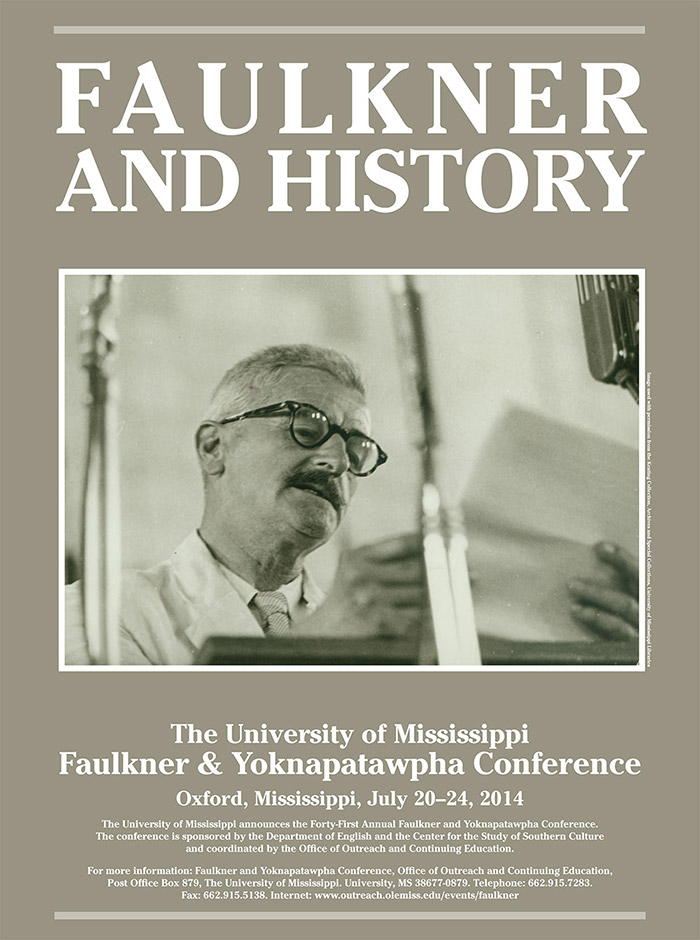
Salvific Animality, or Another Look at Faulkner's South
Location
Nutt Auditorium
Start Date
22-7-2014 2:00 PM
Description
In The Hamlet Faulkner calls upon another kind of apprehension, insisting, somewhat inauspiciously, that we take in what comes without preconception or judgment. In that engagement binaries become insufficient. Words like human and non-human, body and spirit, sacred and profane, sit uneasily in their customary positions. The prose at its most extreme demands a radical change in perspective, beyond the resources of rational inquiry. It invites a knowledge that has everything to do with sentience, an unprecedented attentiveness to the sensual world. Faulkner’s broadest interest is a history that engages multiple referents and overlapping subjectivities that exceed the human. In exhuming what is truly harrowing, and equivocal, about humans—and human sociality—he returns, time and again, to nature, or, more precisely, to animality. I ask how Faulkner’s most vexing asides or unreadable detours become the necessary prompts to an attentiveness that is crucial to his ethics, and to the kind of historical response that it demands.
Relational Format
Conference proceeding
Recommended Citation
Dayan, Colin, "Salvific Animality, or Another Look at Faulkner's South" (2014). Faulkner and Yoknapatawpha Conference. 17.
https://egrove.olemiss.edu/fy/2014/schedule/17
Salvific Animality, or Another Look at Faulkner's South
Nutt Auditorium
In The Hamlet Faulkner calls upon another kind of apprehension, insisting, somewhat inauspiciously, that we take in what comes without preconception or judgment. In that engagement binaries become insufficient. Words like human and non-human, body and spirit, sacred and profane, sit uneasily in their customary positions. The prose at its most extreme demands a radical change in perspective, beyond the resources of rational inquiry. It invites a knowledge that has everything to do with sentience, an unprecedented attentiveness to the sensual world. Faulkner’s broadest interest is a history that engages multiple referents and overlapping subjectivities that exceed the human. In exhuming what is truly harrowing, and equivocal, about humans—and human sociality—he returns, time and again, to nature, or, more precisely, to animality. I ask how Faulkner’s most vexing asides or unreadable detours become the necessary prompts to an attentiveness that is crucial to his ethics, and to the kind of historical response that it demands.

